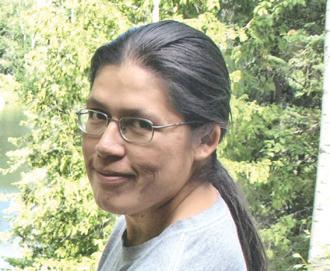
2 minute read
The brave new world
by Xavier Kataquapit

Advertisement
these systems constantly make people feel anger, fear and anxiety. The more negative that people feel, the more they will engage with others of like mind, while creating more page clicks that translate into greater advertising revenue. That’s money that used to go to our local media – newspapers, radio and television – that is now concentrated in the hands of a few multi-billionaires. And that’s why we don’t know as much about what is happening in our society as we used to.
Almost all content on the internet these days consists of short snippets of information. Twenty years ago, it was blogs and written content that people shared with one another. Now the content is sized down to shorter posts and more often into image-captioned memes. Services like Twitter started regulating the size of posts to a mere 140 characters so people could read something quickly and respond instantly.
In the beginning, it was not so easy to share videos online. Now, anyone can instantly share a video on a wide variety of platforms. Now many people think they are the star of their own TV show, and they constantly post their every move, meal or thought on Facebook, YouTube, WhatsApp, Instagram, TikTok or Snapchat. These posts are ever smaller and shorter, feeding into and causing our diminishing attention spans.
Numerous studies connect these instantly gratifying blasts to parts of our brain that create a positive feeling. It lasts just for a moment, but it is enough to briefly make us feel good just as a drug would. Thus, the source of our addiction.
Now, with a phone in our hand, we repetitively reward our brains with this drug, constantly scrolling through endless feeds. This is having a terrible effect on our mental health and prevents us from engaging in creative thought and productive activity.
I grew up in the 1980s without internet. My siblings, friends and I did not have much exposure to the outside world, much less the latest trends in music, fashion, movies or TV shows. We were usually years and sometimes decades behind the rest of North America. The corporate world, governments and advertisers did not really get to us. We spent most of our time outside doing things, playing, working and on the land harvesting food.
We are no longer isolated. Technology has put us, in the space of a generation, within reach of governments, corporations and social media. We are constantly in touch with each other and the wider world. We expose the most intimate parts of ourselves in mindless and endless chatter that has eliminated any notion of privacy. People tell the world what they had for breakfast, what they did last night, who they are fighting with, who they hate, who they love and how hurt they are.
But all those thoughts and actions we post online eventually end up hurting us and our communities while creating huge profits and power for the social-media controllers of our personal content. Welcome to the Brave New World.









